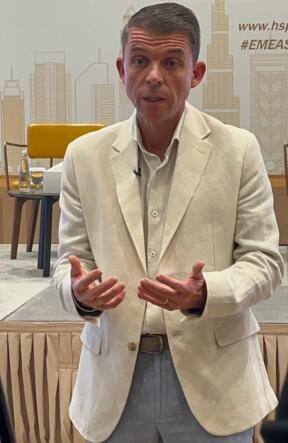The South African Revenue Service (SARS) estimates that illicit trade costs the South African economy R100 billion annually.
The EMEA Security Conference and Exhibition under way in Dubai has highlighted the impact illicit trade and counterfeiting have on countries, and solutions are being sought to eliminate them.
As
The conference, which runs from November 8 until November 9, in Dubai, brings together an international audience of over 300 leading specialists to discuss the latest trends, developments, threats, and solutions relating to illicit trade and counterfeiting across industries.
Speaking to IOL on Thursday, former General Director of Fiscal and Customs Police in Colombia and founder and CEO of Strategos BIP, Juan Carlos Buitrago, emphasised that collaboration and action were the keys to eradicating this black market.
Strategos BIP is a consulting firm that specialises in intelligence and security risk management.
Previously, Buitrago said SA’s illicit trade is its biggest threat.
With 33 years of experience and knowledge within law enforcement, he said there were many factors which see the trend of illicit trading spiral such as society, economy, and government.
Previously, he said illicit trade is revenue growth for organised crime, and much like organised crime has become rampant in South Africa, Colombian cartels are known across the world and this funding for organised crime comes from illicit trading.
He said criminals thrive on three factors: the fragility of the State, corruption, and the power of crime.
“The power of criminality. Mafias are always chasing and checking how they can take political and economic power. Criminals want more control of the national supply chain,” he said.
He said resources, regulations, and policies are needed to tackle the strong relationship between counterfeiting and illicit trading.
Bruitrago said many times that a lack of monitoring also results in criminals easily getting away with illicit trades.
According to figures, the cost of corruption across the world is $3.3 trillion.
He explained how criminals would bribe their way through and go to the extent of killing police officers, politicians, and judicial figures to penetrate those authorities that hamper their trading.
“With the information we have, corruption is highly ranked, and Pakistan, South Africa, and Colombia top the list. Corruption is a fuel in this industry.
“One of the key factors in preventing this is combating and dismantling these organisations from the root.
“But the problem we have is assigning this. The idea is to go from coordination to integration. We have to take action. With practical, efficient, harmonic, and specific indications to go from coordination to integration, along with unique leadership that integrates all these efforts,” Bruitrago said.
He shared four ways this could be implemented:
1. Being tactical’
2. Taking the assets from organised crime groups
3. Taking the money from organised crime groups
4. Enhancing intelligence
Bruitrago said while it is fruitful to manage our borders, he has also urged for detailed strategies to be applied, both nationally and locally.
He has since become the leader of an alliance between countries that are now following these guidelines to combat illicit trading and counterfeiting.
COEPA (Colombia, Ecuador, and Panama) has formed an alliance, and this is promoted by not only the private sector but also the United Nations University, among others.
The alliance was created in December 2022 in Panama, and the grouping, which consists of roleplayers from all sectors within the countries, met last month in Columbia and is expected to meet next week in Ecuador.
“The idea is to enhance and have specific investment with the support of the private sector and, in turn, for action to be taken by authorities,” Bruitrago said.
He said South Africa and Colombia suffer the same costs due to illicit trade.
The South African Revenue Service (SARS) estimates that illicit trade costs the South African economy R100 billion annually.
But Bruitrago said they will be forming two more alliances.
Mexico, Guatemala, and El Salvador will form an alliance, and in the south, Argentina, Uruguay, Paraguay, and Brazil will form an alliance.
“These three alliances will be to prevent organised crime and illicit trading.
“This is not just about talking. This is about taking action,” Bruitrago added.
[email protected]
IOL

